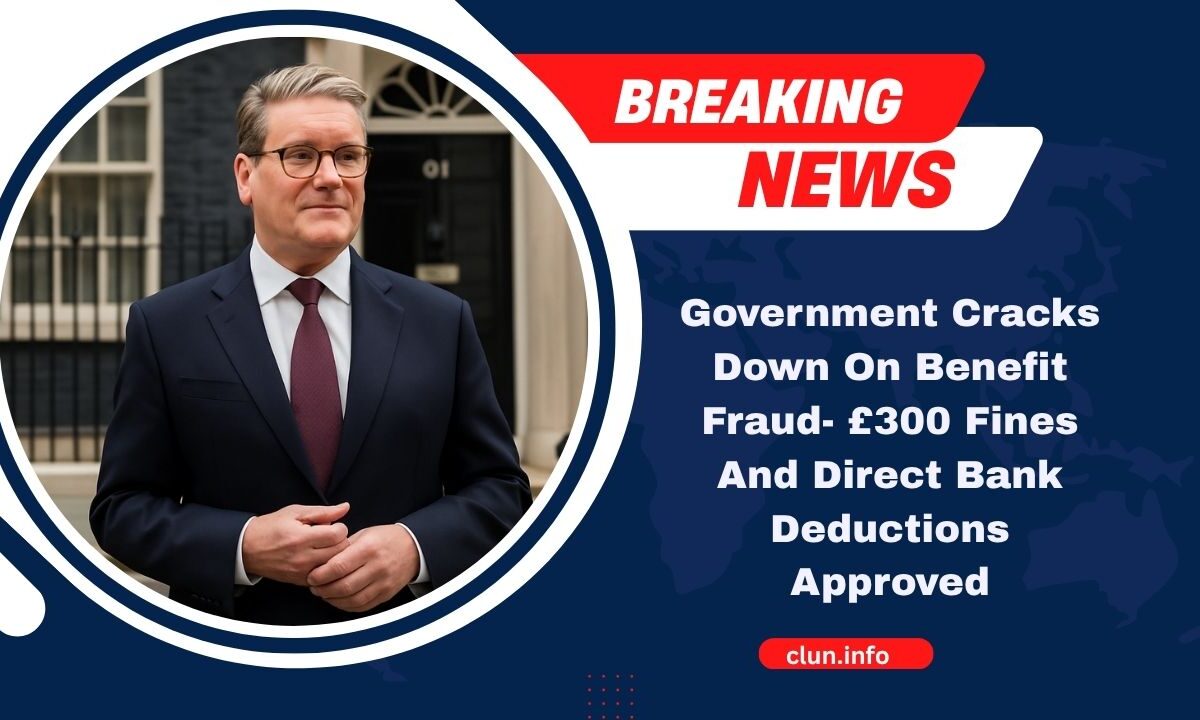In a significant move to fight benefit fraud and recover public funds, the UK government has introduced strict new enforcement powers allowing the Department for Work and Pensions (DWP) to directly deduct money from bank accounts, issue £300 civil fines, and pursue legal action against those who fail to repay fraudulent claims.
This crackdown is part of a broader effort to ensure that taxpayer-funded support goes to those who truly need it, not to individuals who abuse the system.
Why These Measures Are Being Introduced
According to official figures, the government lost £823 million in benefit fraud and errors during 2021–22. However, only £190 million (23%) was recovered. In other public sectors like the NHS, recovery rates were even lower — only 12% of fraud-related losses were reclaimed.
This loss impacts essential services and vulnerable groups, including pensioners, disabled individuals, and low-income families. The government’s aim is to recover this money faster and more effectively.
New Powers Granted to the DWP
The new enforcement rules give the DWP expanded authority. These include:
| New DWP Powers | Details |
|---|---|
| Bank Account Access | Can request account information for those suspected of fraud or debt evasion |
| Direct Deductions | Can withdraw funds from accounts via deduction orders without court action |
| Civil Fines | Issue fines of up to £300 to those avoiding repayment intentionally |
| Cross-Department Authority | Work with other departments to trace hidden assets or undeclared income |
| International Recovery | Investigate and recover funds stored in foreign accounts or property abroad |
When and How These Powers Will Be Used
The DWP states that these measures will be used only as a last resort. Here’s how the process generally works:
- Initial Contact: If you owe money, DWP will first contact you to agree on repayment terms.
- Repayment Plan: If you respond, you may be offered a repayment schedule based on your ability to pay.
- Final Step: If you ignore the request and have sufficient funds, DWP may deduct the money directly or issue a civil fine.
For example, if someone has £5,000 in savings but refuses to repay a £1,000 fraud-related debt, the DWP can withdraw that amount without going to court.
Can You Challenge These Actions?
Yes. The new system includes clear rights and protections:
- You can challenge the decision
- Request an internal review
- Submit a formal representation
- Appeal to an independent tribunal
DWP assures that trained officers will handle cases and there will be independent oversight to prevent misuse or errors.
What If You Have Money Overseas?
If a person falsely claims to have no savings while hiding assets abroad, the DWP now has the power to:
- Freeze foreign bank accounts
- Seize overseas property
- Collaborate with international financial authorities
This includes cases like someone owning an apartment in Spain while receiving housing benefits in the UK.
Public and Legal Concerns
While many support the changes, privacy advocates have raised concerns about the government accessing personal financial data. Critics argue that direct bank access could lead to potential abuse or mistakes.
However, the DWP insists safeguards are in place, including:
- Solid evidence requirements
- Limited use only when necessary
- Right to appeal and independent monitoring
What This Means for You
If you claim benefits honestly, have no history of fraud, and respond to DWP communications, you have nothing to worry about.
However, you could be affected if:
- You ignore repayment notices
- You made false claims
- You are financially capable but refuse to repay a fraud-related debt
In such cases, you may face £300 fines, bank deductions, or even legal proceedings.
The UK government’s benefit fraud crackdown in 2025 sends a clear message: public funds must be protected, and those abusing the system will face serious consequences.
With £300 fines and direct bank deductions now on the table, claimants are urged to stay transparent and responsive.
These new powers empower the DWP to recover stolen funds quickly, while ensuring fairness through oversight and appeal rights.
For the majority of honest recipients, these rules offer reassurance that the system will better serve those in real need.
FAQs
What is the new £300 fine for benefit fraud?
It is a civil penalty issued to individuals who deliberately avoid repaying benefit fraud debts.
Can the DWP take money from my bank without permission?
Yes, through a deduction order, if you owe money and refuse to repay despite having sufficient funds.
Can I appeal if I think there’s been a mistake?
Absolutely. You can request a review, submit a challenge, or appeal to an independent tribunal.




